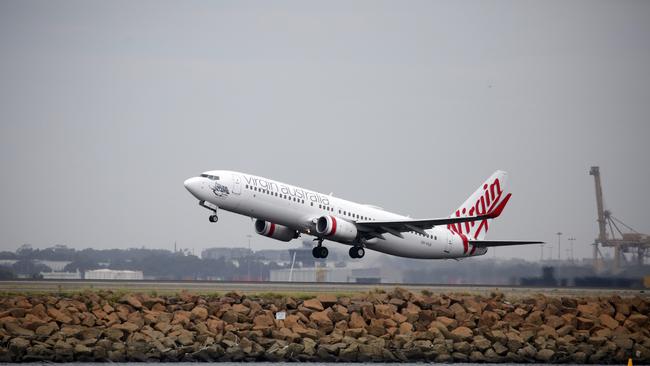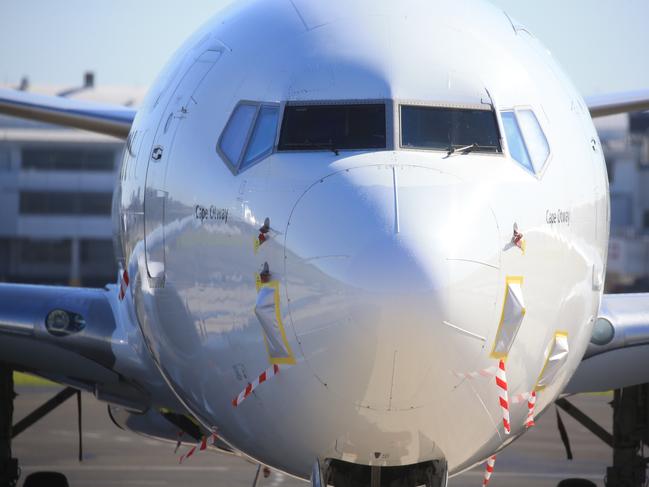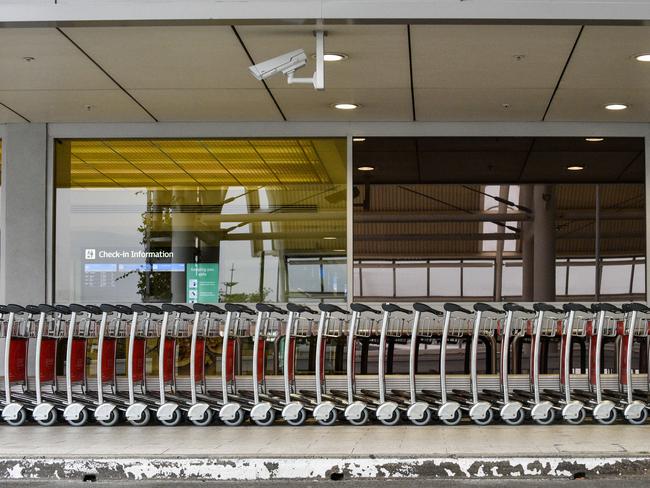Plan to relocate Sydney airport controllers to Melbourne could impact noise, union says
Increased aeroplane noise could torment Sydneysiders if a controversial plan to relocate air traffic controllers goes ahead, a union has warned.

Travel
Don't miss out on the headlines from Travel. Followed categories will be added to My News.
Increased aeroplane noise could torment Sydneysiders for years if a controversial plan to relocate airport traffic controllers to Melbourne goes ahead, a union has warned.
Airservices Australia, an organisation run by the federal government, strongly denied the planned move of 65 air traffic control jobs from Sydney to Melbourne would impact on noise levels in the NSW capital.
But the union Civil Air said only 15 of those workers were currently thinking of making the move down to Melbourne, meaning it could be necessary to train dozens of new staff in Victoria.
Civil Air fears an influx of trainees conducting Sydney’s air traffic control would increase noise for people living near the city’s flight paths.
The union’s president Tom McRobert said trainees tend to operate cautiously, prioritising safety over noise reduction, and that they might not be as good at keeping the aircraft exactly on the current flight paths.

“The move to Melbourne will amplify these issues, because they will be training so many more people, and for such a long time,” he said.
“Instead of having a trainee on for two or three months a year, you’ll probably see a trainee on every shift. It means operational uncertainty, which can increase noise or cause the flight paths to change slightly.”
The transition is projected to last about four years.
Airservices Australia said the claim that noise could increase was “inaccurate”.
“We are confident the transfer of Sydney terminal airspace control services will not impact aircraft operations or noise, having already safely transitioned services for Adelaide, Canberra, the Gold Coast and Cairns to our major Air Traffic Services Centres in Brisbane and Melbourne,” a spokeswoman said.
But Mr McRobert contended there would certainly be an impact felt while the transition is ongoing.
“Long term, yes, there won’t be an impact, but to get to that point, there will be impacts on Sydney,” he said.
“There will be some small mistakes being made by trainees, whether that be noise, or less efficiency, that’s just the nature of training so many people in such a short period of time.”
A Sydney air traffic controller who spoke on the condition of anonymity said the learning process for the Melbourne staff would be akin to a city full of L-platers all learning to drive at the same time.
“We’ve got concerns about the safety impact due to the vast amount of training that will need to occur simultaneously, and the only way to minimise this risk would be to take on less aircraft at a time,” the person said.
“And the result of this means more delays for air traffic, which in turn leads to more aircraft noise … and you’d be looking at this cycle for the next five or so years at least.”

The person said the fact Sydney’s airport operates on two parallel runways only a kilometre apart from each other means it takes specialised skills to land more than one plane at the same time, which is required to maintain the busy traffic.
The Melbourne trainees may not immediately be able to perform that task, meaning arrival rates could be slashed and more planes left waiting in holding patterns, the controller said.
“In order for Sydney to achieve this double arrival rate we work to procedures that allow each runway to be operated independently of each other, which is why often when you land at Sydney if you look out the window you’ll see another plane directly next to you on the other runway,” the controller said.
“The controllers who control the aircraft at this critical stage are some of the most experienced controllers in Australia, and many have been doing this role in Sydney for 20-30 years, and the ability to run the highest arrival rates possible at Sydney airport relies on the judgement and expertise of these controllers.”
The Airservices Australia spokeswoman said the transition to Melbourne would not impact on safety and managing airspace from major traffic centres was “a model used around the world”.
“The terminal airspace for London’s Heathrow Airport is managed at a major operations centre in Swanwick near Southampton, for example,” she said.
“Sydney’s terminal airspace will continue to be managed by specialist controllers with a deep understanding of the airspace and the transition does not affect the Sydney air traffic control tower.”
She also said the transition timetable had been extended from two to four years after feedback from the Sydney controllers.
As for the future of the 65 affected workers in Sydney, the spokeswoman said they would all be offered a range of choices and no job losses would be “required”.
“We are currently in consultation with each individual to discuss their preferences,” she said.
“All 65 air traffic controllers will be offered the opportunity to retrain and remain in Sydney, relocate to Melbourne or another Airservices location, explore term or temporary transfer alternatives or voluntary redundancy if that is their preference.
NSW Labor jobs spokesman David Harris said the state government should have “put up a fight” and lobbied Commonwealth to stop the move.
“Sydney should be fighting for every job, particularly highly skilled jobs,” he said.
“Sydney is the gateway to Australia and with the new airport underway, it makes no sense that these jobs would be lost to Melbourne.”
Originally published as Plan to relocate Sydney airport controllers to Melbourne could impact noise, union says


